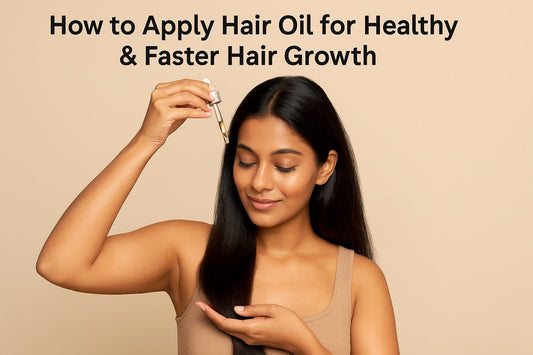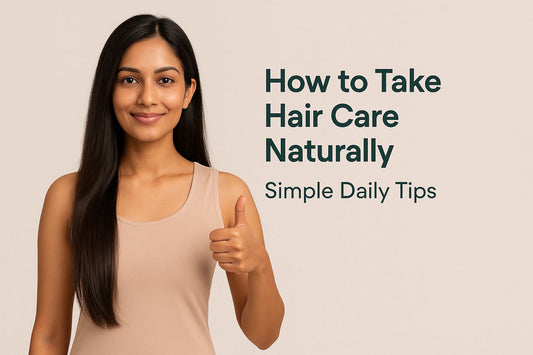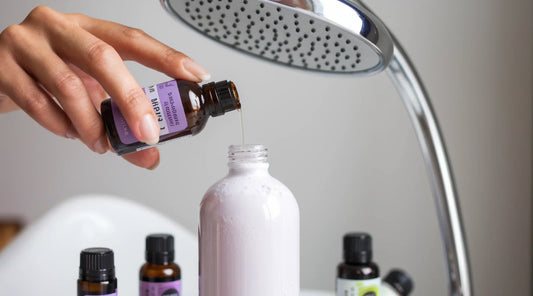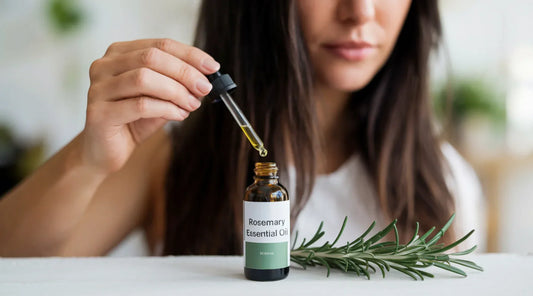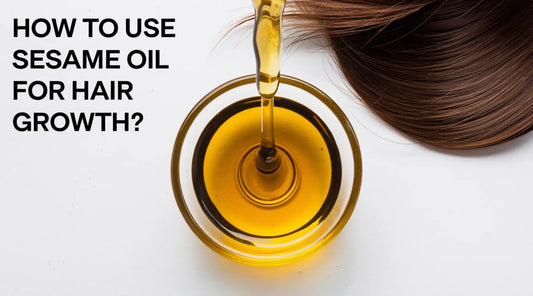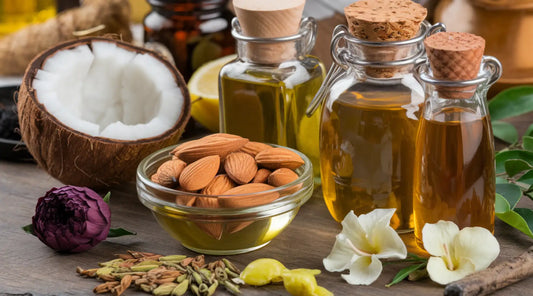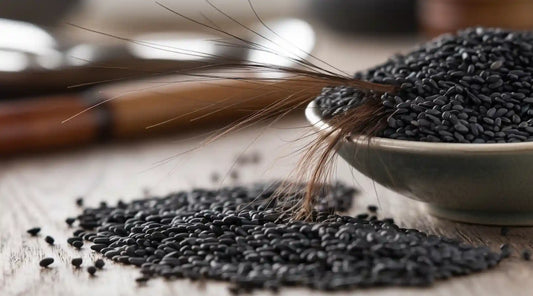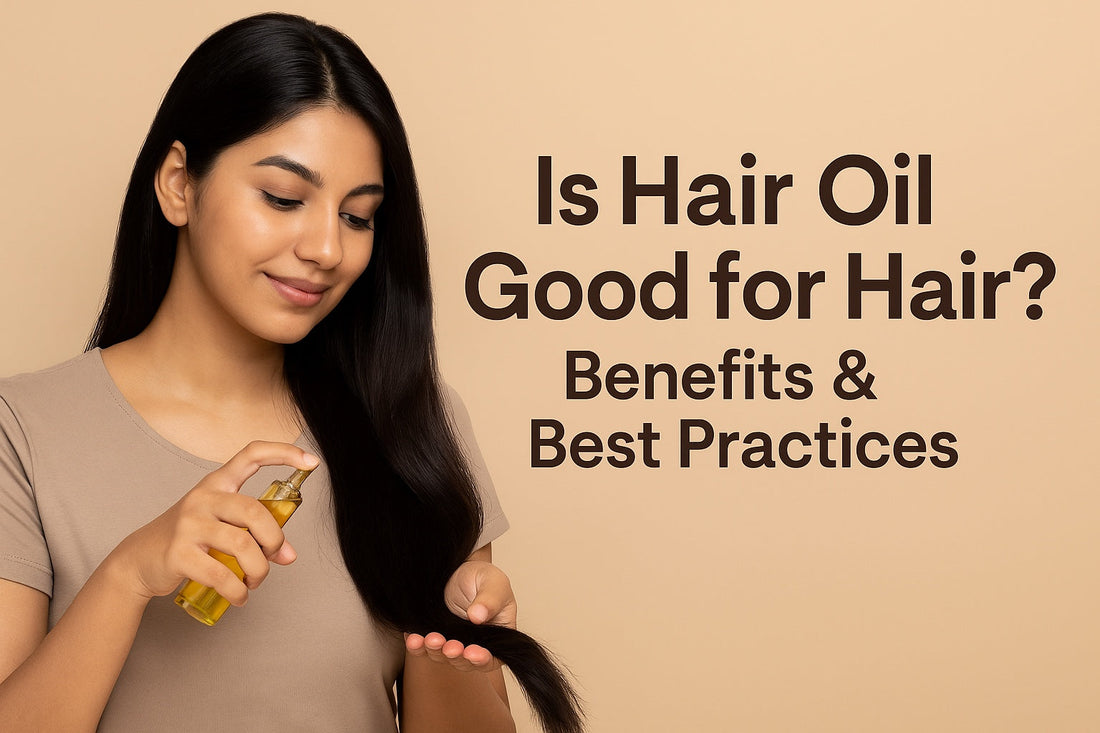
Is Hair Oil Good for Hair? Benefits & Best Practices
Introduction to Is Hair Oil Good for Hair?
Hair oiling is one of the age-old traditions that have stood the test of time—be it ancient Ayurveda or a contemporary self-care ritual. But now in this age where there is a plethora of serums, conditioners, and treatments — and many of which promise to do what a hair oil would do for hair — does hair oil still hold up, and is hair oil good?
The answer is not that straightforward as a simple yes or no and instead depends on your hair type, scalp health, and how you have been using those oils. If you do it right, hair oil fortifies strands keeping them strong and less prone to breaking, a nourished scalp and even promote hair growth. However, misuse—such as over-applying or using the incorrect oil - might make fine locks greasy or the scalp appear to be congested.
Through this comprehensive guide, we’ll demystify the science (and the tradition) behind hair oiling, explore the pros, cons, and best practices, and you’ll be able to determine if incorporating oils into your routine will get you stronger, shinier hair. At the end of it, you will have a clean answer to the question — is hair oil good for hair?
1. Hair Oiling — The Traditional Lists?
The concept of oiling hair is not a new one, its roots go back thousands of years. Ayurveda recommends oils, such as coconut, sesame, and amla, in India to balance hair/scalp. Ancient peoples have always turned to nature for solutions, and for centuries argon oil has been preferred in the Middle East to preserve the hair in arid desert conditions, while castor oil is king in Africa for growing stronger, thicker natural curls and coils.
And these traditions weren't merely cosmetic—they were based in health. It was thought that oil cools the scalp, calms the mind and nourishes the body. Today, we can turn to scientific studies confirming some of these practices, like the use of natural oils for reducing protein loss, increasing water content and protecting against more environmental factors for hair.
And so when we question, is hair oil good for hair, a history of its own appears to respond: yes - if used judiciously.
2. The Science Behind Hair Oil
The outer layer consists of cuticle and hair is composed of keratin proteins. While washing your hair, daily styling, environmental factors such as pollution and UV rays, and even daily shampooing, all deplete our strands of these natural oils making them weaker and frizzy. Using outside oils helps to replenish this barrier.
Oils & Protein Loss
-
According to a widely cited study published in the Journal of Cosmetic Science, for example, coconut oil is more effective at penetrating inside of the hair shaft and preventing protein loss than either mineral oil or sunflower oil. Which is why it is often called expert for hair oils.
Oils & Moisture Retention
-
Oils provide an outer shell around the strand to seal in moisture as well as prevent excess water from being absorbed (which creates frizz).
Scalp Health
-
Other oils have fatty acids and antioxidants, and some anti-microbial properties that can calm the scalp and promote a better environment for growth.
The question remains, is hair oil good for hair scientifically? Research indicates that the proper oil is able to protect & nourish your hair somewhat at the structural level.
3. Key Benefits of Hair Oiling
Makes Your Hair Stronger And Decrease Hair Breakage
-
When you oil it regularly, you keep the friction at bay, so it will get unknotted and washed easily without the strands breaking. Coconut, almond and olive oils are particularly potent.
Improves Shine & Smoothness
-
Oils lock the cuticle, creating a shiny, sleeker surface on hair. It minimizes frizz and flyaways, giving your hair a healthier appearance.
Supports Hair Growth
-
Oils do not literally “make” your hair grow, however, they do help improve the function of your follicles thanks to the increased blood flow that accompanies a good, scalp massage.
-
This is exactly the reason behind which both the Castor oil and rosemary oil have become very popular among people.
Nourishes the Scalp
-
Dandruff and itching are generally caused by dry scalp. Antifungal oils (neem or tea tree mixed with a carrier oil) can be soothing and help keep everything in balance.
Protects from Damage
-
Things that can cause damage to the hair shaft are UV rays, pollution, and heat styling. Oiling is a natural barrier between your skin and the outside, and it helps not only to prevent the loss of too much moisture, but also to protect the skin from damage.
Relaxes the Mind
-
More than just the benefits to the body, massaging oil into the scalp releases stress. Less stress = Better cycle of hair growth.
If you are still asking is hair oil good for hair, then these advantages make it clear that its gambit is both beauty and healing.
4. Common Myths About Hair Oiling
Myth 1: Oiling helps to grow hair faster.
In reality: Oils definitely provide a healthier scalp and a decrease in breakage, which ultimately will make hair look longer but do not accelerate growth, that is solely dependent on the follicles
Myth 2: THE MORE OIL — THE BETTER
Fact: Excess oil may cause pores to become blocked and prevent shampooing as thoroughly as possible, resulting in residue.
Myth 3: Oil needs to be left overnight
Myth: Overnight treatment work for everyone Truth: 30–60 mins also works for some. With oil left for too long, dirt and dust start to be attracted.
Myth 4: Oils replace conditioner.
Reality: Oils are moisture sealers, conditioners are moisture givers. They complement each other.
By breaking these myths we can have an idea that the answer to the question as to whether hair oil good for hair or not. —yes as long as these practices are used
5. Best Practices for Hair Oiling
Choosing the Right Oil
-
Penetrates the hair shaft and minimizes protein loss: coconut oil
-
Argan oil – packed full of vitamin E, great for frizz and shine
-
Castor oil—provides thickness, benefits the health of your scalp
-
Jojoba oil – most similar with the sebum the scalp produces itself
-
Almond oil – strengthens and makes hair softer
How to Apply Hair Oil
-
Warm a few teaspoons of oil.
-
Part your hair into sections.
-
Use the finger tips to lightly massage into the scalp.
-
Drizzle the rest of the oil on the lengths
-
Let sit for 30 minutes to overnight.
-
Wash with a mild shampoo.
Frequency of Oiling
-
Oily scalp: once a week
-
For dry or damaged hair: From 2–3 times per week
-
Regular scalp: Once in 7–10 days
When to Avoid Oiling
-
If you suffer from a scalp infection (see a physician).
-
If your hair has really, really fine strands and feels heavy.
-
Prior to chemical procedures such as keratin or rebonding.
These all points ensure that when you ask your self the question; Is hair oil good for hair, the answer will be a YES for you.
6. Who Should Use Hair Oil?
-
Ideal for: dry, frizzy, curly, or damaged hair.
-
Best for: those with dandruff, an itchy scalp, or split ends
-
Do not use if you have: a greasy scalp or fine hair, or if you have sensitive skin that breaks out easily.
-
Being tailored, one size does not fit all when it comes to hair type.
7. Alternatives to Traditional Oiling
-
If you do not want that weight of oils, you can try:
-
Hair serums: Light-weight shine and frizz control
-
Leave-in conditioners – moisture without the greasiness
-
Scalp tonics — water-based formulas that help encourage circulation
Thus, in case you have doubts is hair oil good for hair, you could even compromise with lighter solutions that present related results.
Conclusion on Is Hair Oil Good for Hair?
Does that mean is hair oil is good for hair? The short answer is yes. These oils work to fortify strands, moisturize the scalp, minimize breakage, and shield against environmental aggressors. However, the key is be moderate and align the oil to your hair type.
If you're already struggling to fit anything new into your routine, even a weekly scalp massage with a lightweight oil can yield visible results. Consistency matters more than quantity.
Ultimately, hair oiling is a practice that connects science with self-care. It’s not a miracle cure, but it is one of the oldest and most effective ways to support healthier, shinier, and stronger hair.
